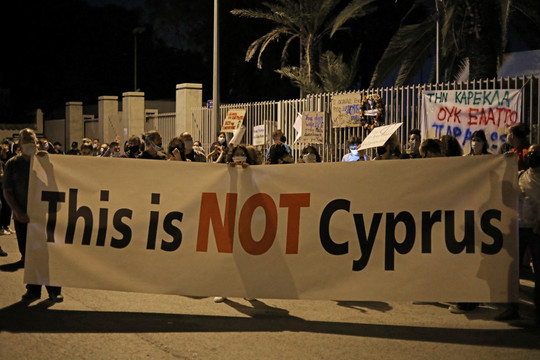A legislative amendment concerning the criminalisation of the dissemination of false news, threats, insults and the dissemination of obscene photos and images on the Internet will be presented to the plenary session of the Cypriot Parliament in September. The amendment provides for the conversion of a series of civil offences into criminal offences, as well as a prison sentence of up to five years.
On 3 July 2024, the Legal Committee of the Cyprus Parliament discussed a proposed amendment on the dissemination of fake news, threats, insults and obscene images online. The deputy public prosecutor of Cyprus, Savvas Angelidis, and the chairman of the parliamentary committee, Nikos Tornaritis (Democratic Rally party), both spoke in favour of the amendment, while the UCJ-ESK and the Association of Newspaper and Magazine Publishers of Cyprus formally opposed it.
It is the second time this year that some members of the Parliament have attempted to promote such an amendment on the criminalisation of fake news.
While recognising the need to combat disinformation, the IFJ, EFJ and their Cypriot affiliate call on the authorities to follow the recommendations of the Council of Europe, the European Union and the Organisation for Economic Co-operation and Development (OECD), which advise governments against adopting legal provisions criminalising disinformation, given the risk of chilling effect on press freedom and free speech.
The IFJ and EFJ believe that the best antidote to disinformation is the promotion of a healthy information ecosystem, which favours media literacy, quality information, ethical journalism, independent and pluralistic media, decent working conditions for journalists and the promotion of a culture of transparency. Wherever repressive laws have been passed, they have proven to be ineffective, counterproductive, or even diverted from their official objective to intimidate journalists or encourage them to self-censor.
The IFJ and the EFJ strongly call on the Cypriot legislator to comply with European legal standards and to withdraw this amendment to the criminal code.

